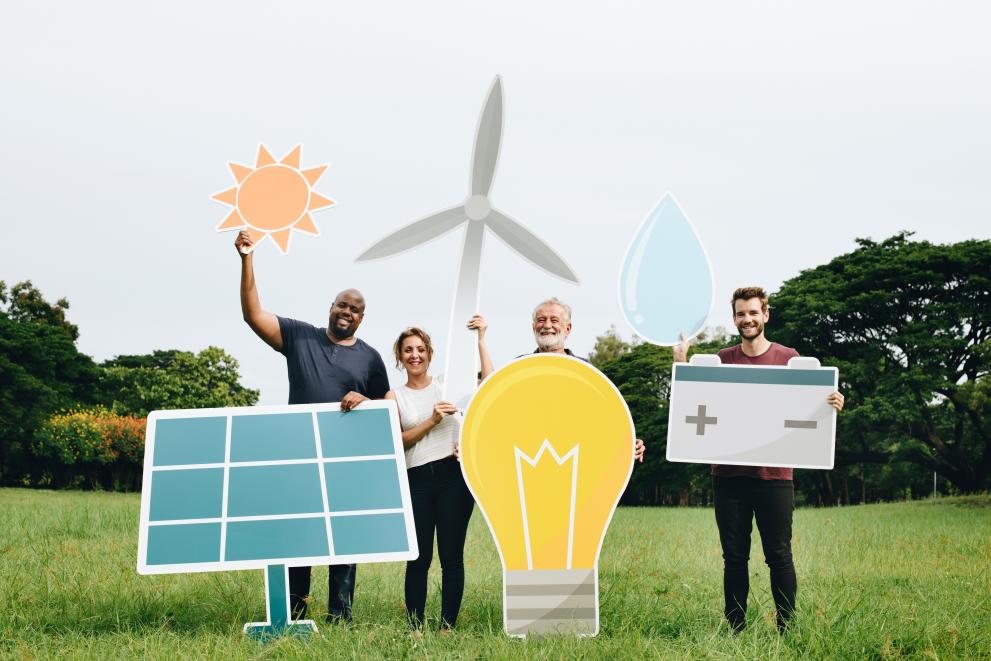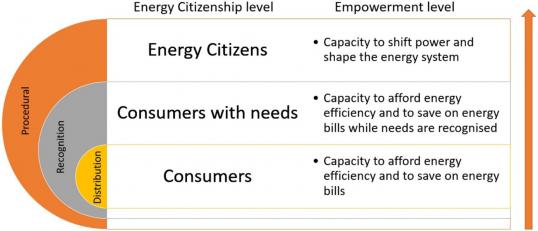
A new JRC paper examines ways to empower the energy poor and vulnerable consumers as active informed citizens and actors in the energy system, looking at exemplary practices from around Europe. Promising initiatives include energy advisors, trusted intermediaries, locally embedded innovative business models (like one-stop shops), trainings of energy actors, energy ombudsmen, energy cafés and individual and collective prosumerism, giving citizens an active role in the energy transition.
The paper, Empowering energy citizenship among the energy poor, has been published in the journal Energy Research & Social Science. The authors –from the Joint Research Centre of the European Commission– propose a conceptual framework to identify the mechanisms that can transform the energy poor from passive consumers into active citizens that can take informed energy investment and consumption decisions and become actors shaping the energy system.
In 2018, nearly 34 million Europeans were unable to afford to keep their houses adequately warm. Energy poverty is generally defined in terms of high energy prices, low income and energy-inefficient housing. The European Climate Pact, published in 2020, envisages an Energy Union “where citizens take ownership of the energy transition”, and the recast Renewable Energy Directive (RED II) requires Member States to facilitate the development of energy communities, even among low-income and vulnerable households, as a way to reduce energy poverty.
Energy citizenship
Energy citizenship is an emerging concept, describing citizens’ role in the energy transition not only as optimal energy consumers engaging with technology, but also as social and political actors who democratically engage with energy decision-making processes. However, for citizens who face multiple injustices, as the energy poor, to play this broader role, an empowerment process needs to be catalysed.
Inequalities in the distribution of income, energy efficiency and energy costs, social exclusion and rigid power relationships (such as those between owners and tenants) make it hard for the energy poor not only to have their energy needs recognised in and addressed by the energy system, but also to actively shape the energy transition.
This paper addresses the challenge of making energy citizenship accessible to those who suffer energy poverty by proposing a three-level empowerment process. The mechanisms falling under the first level of the empowerment process promote the role of citizens in the energy system as consumers who can afford energy efficiency and save on the energy bills. The mechanisms falling under the second level of the empowerment process promote the role of citizens in the energy system as consumers whose specific needs are acknowledged in the energy system. The mechanisms falling under the third level of the empowerment process promote the role of citizens in the energy system as energy citizens who can enact changes in their relevant contexts and in the energy system.
Promising examples
The authors identify a number of promising examples with the potential to empower energy citizenship, including the use of energy ombudsmen to detect and prevent energy injustices, energy dialogues such as energy cafés which enable the energy poor to engage with their energy problems in a more political way, locally embedded energy advisors who provide informal energy advice, and prosumerism, both individual and collective, where citizens take control of energy resources.
However, the authors also find that the process empowering the broader role of energy citizen among the energy poor has just started, and is hindered by several barriers. This process is often catalysed by policymakers, including local authorities and grassroots initiatives, but these can lack funding, knowledge and time. Therefore, also these actors should be empowered to create favourable conditions for the diffusion of those initiatives empowering the energy poor to be at the forefront of the energy transition.
Sources
Details
- Publication date
- 30 June 2022
- Author
- Joint Research Centre

